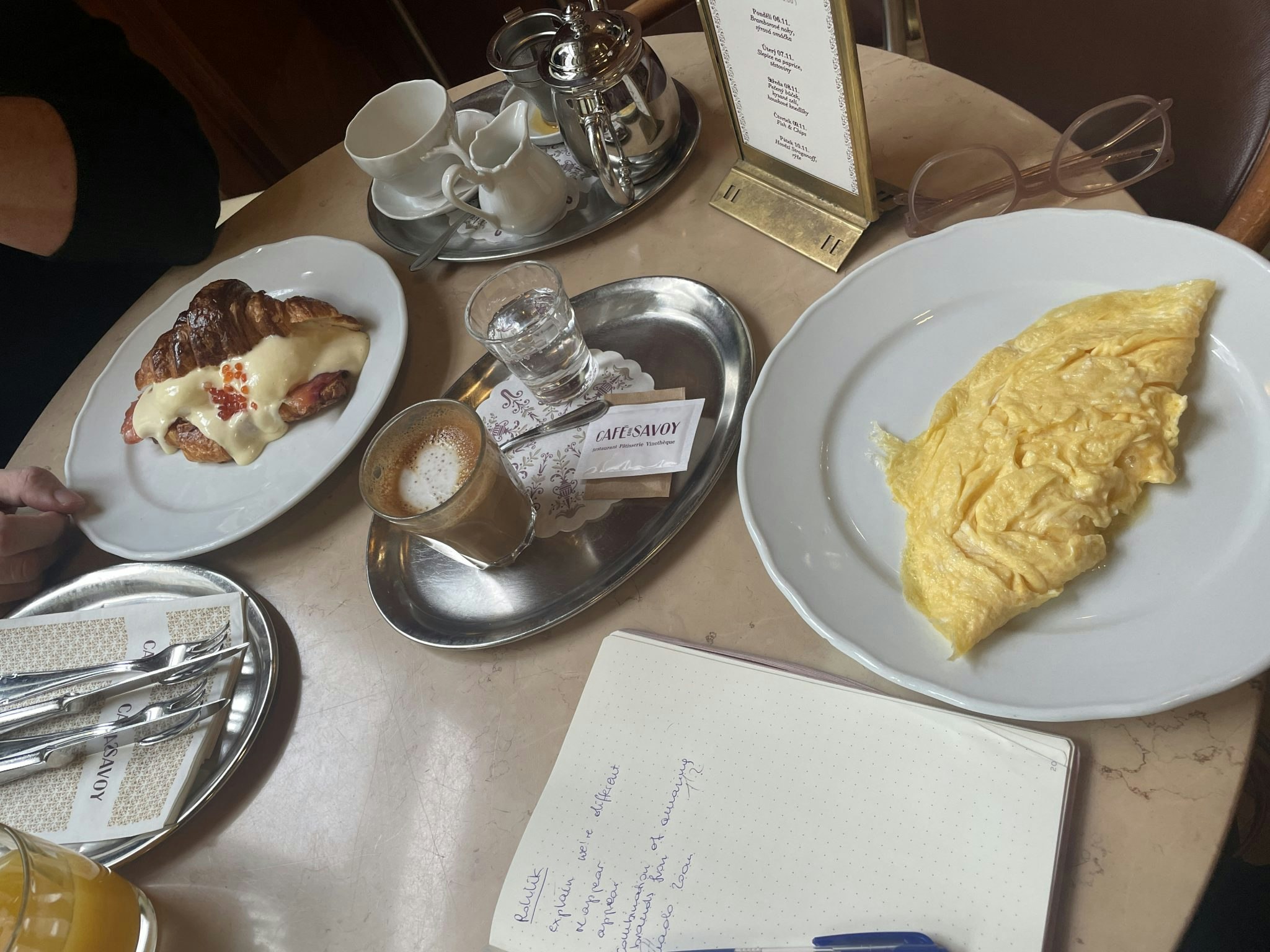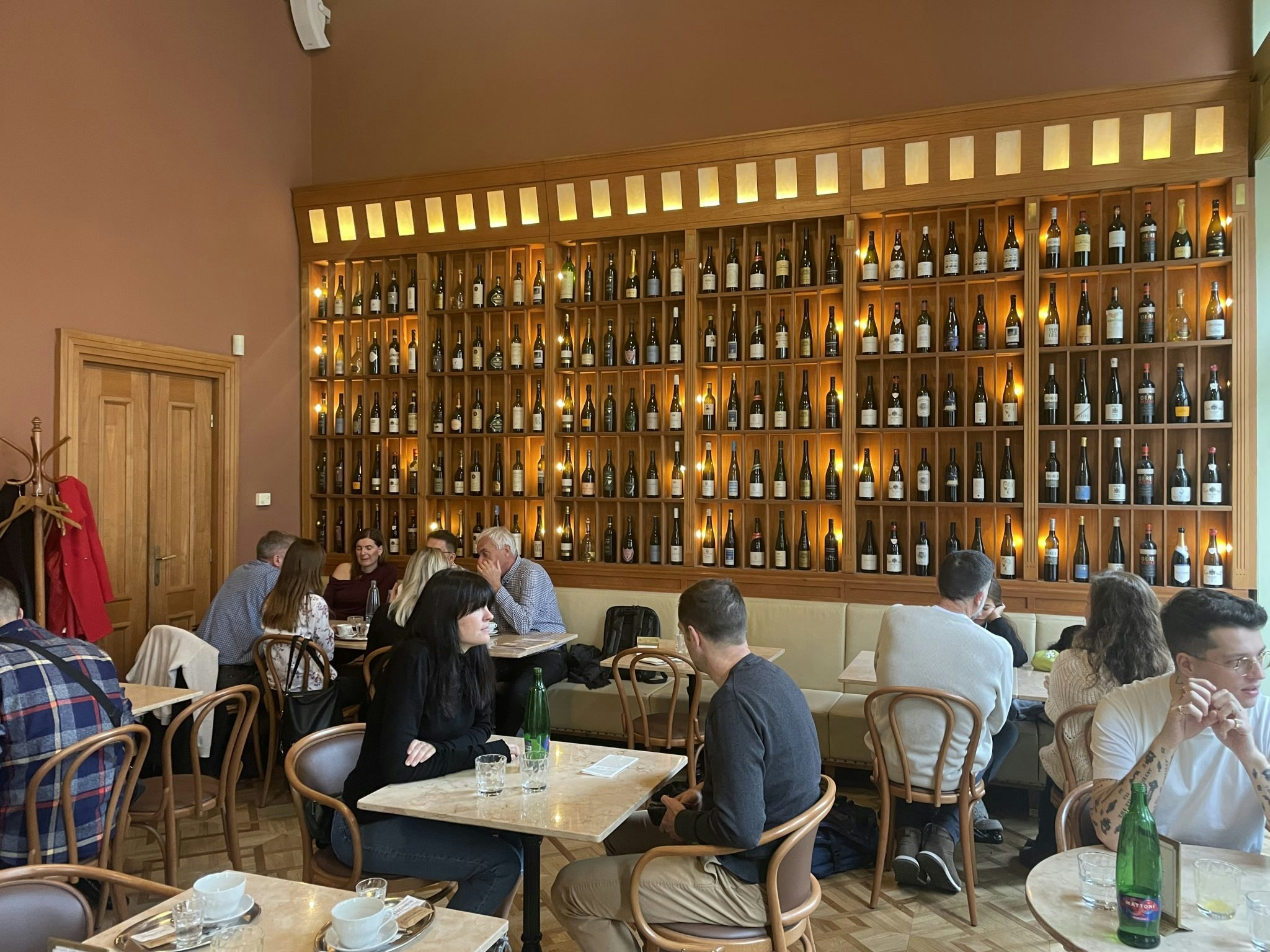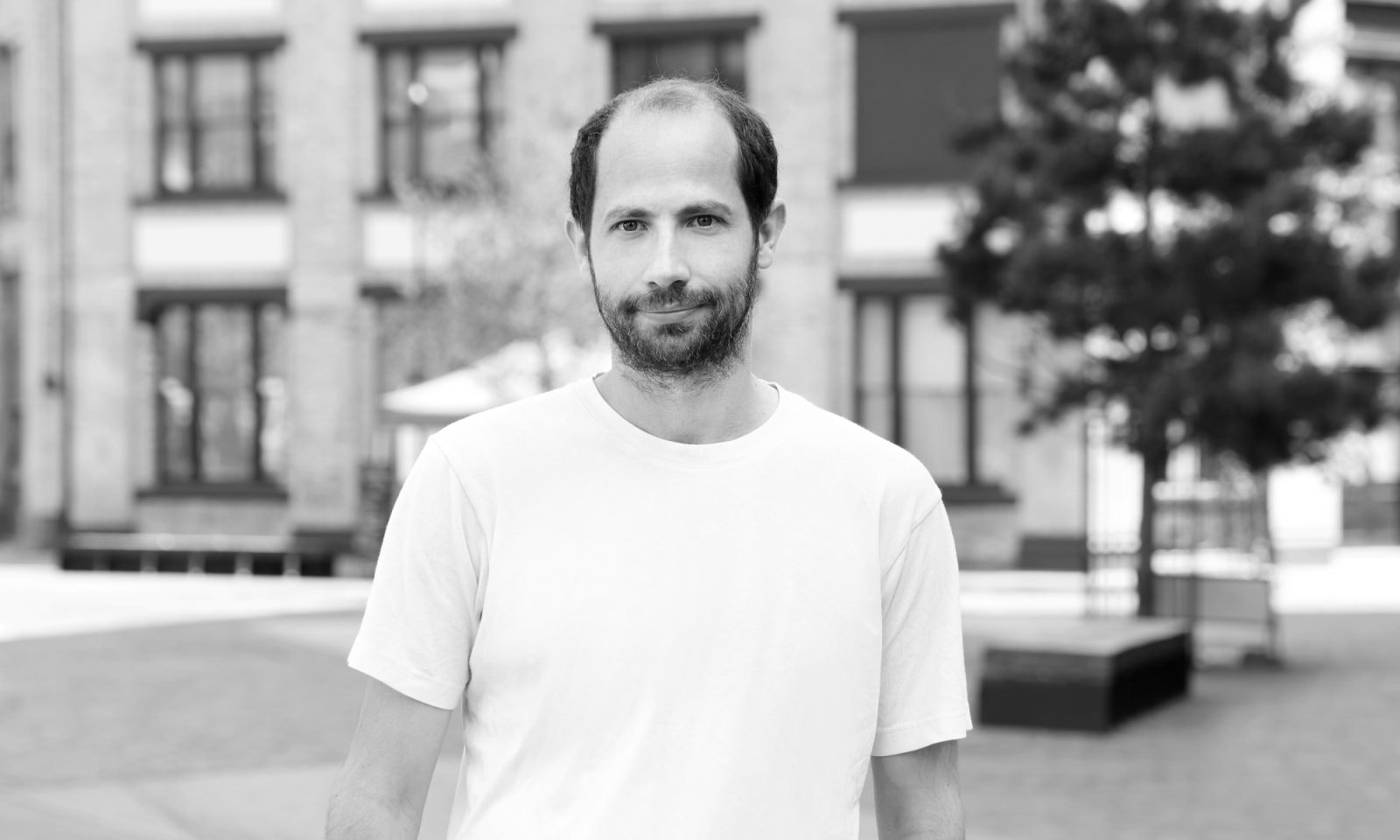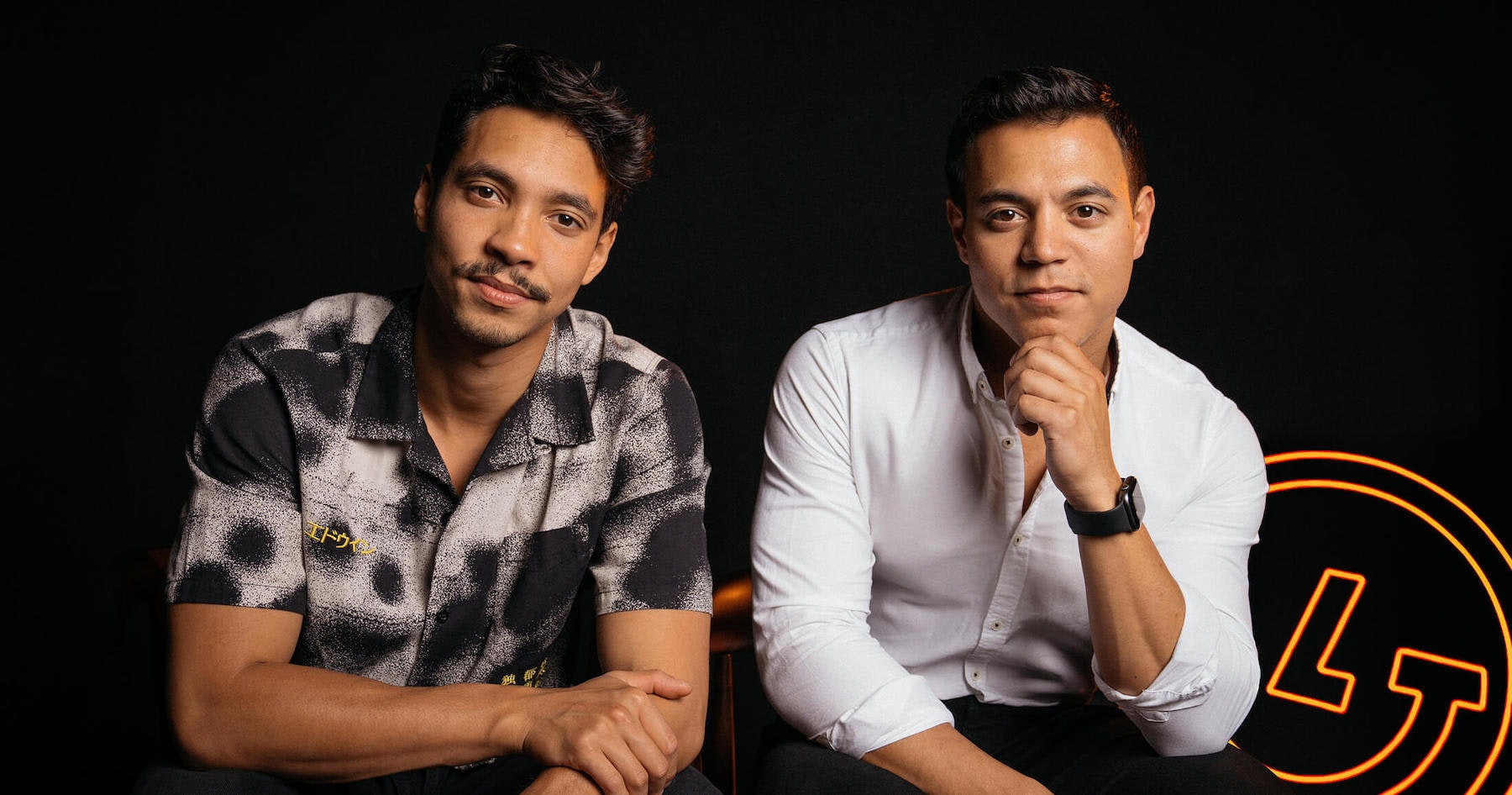Tomáš Čupr orders a croissant as we sit down for brunch in Prague’s iconic Cafe Savoy. (This being the Savoy, it comes with poached eggs, hollandaise sauce and a splash of caviar.)
Such a nice touch, I think to myself: the name of his company, the online grocer Rohlik, means croissant in Czech.
Founded in 2014, Rohlik, which was valued at $1.2bn in 2021 and has raised $593m over the years from VCs like Index, Partech and Sofina, has grown to be a major player in the region. It also hasn’t stopped growing, while many competitors focused on speed — like Gorillas and Getir — have laid off staff and shut down stores over the last couple of years.
Čupr, who is CEO, wasn’t at all surprised when he saw his quick commerce competitors go bust. “There's no economics in it,” he says. “Also there's no loyalty. In that small dark store, you cannot create an assortment proposition that customers will love.”
Rohlik is different, he says. It has a vast and varied assortment — a mix of staple food, local delicacies (including the Savoy croissant he’s eating), household essentials, toiletries, pet food and more — enabling customers to do their full weekly shop. It might not be as speedy as the 10-minute delivery companies, but it can still deliver within an hour — and it has a proprietary logistics system that makes delivery ultra-efficient.
“We’re full basket, we’re still fast — and we’re profitable,” he sums up. He’s also, slowly but surely, expanding across the continent.
Grocery delivery boom and fall
Nested on the left bank of Vltava river, Cafe Savoy, with its wooden floors, art nouveau decor and suited-up waiters, makes you sit down and think of the fall of the Habsburg Empire.
Despite its historic looks, today it's a popular restaurant for tourists, locals and Prague’s business folk.
Čupr is clearly a regular here — he knows the waiters and greets people passing. No wonder why: he’s been a well-known entrepreneur for over a decade, having founded and exited two other businesses, including a food delivery company called Dáme jídlo, which he sold to Delivery Hero in 2014.
Since then — way before it was in vogue — he’s been building his online grocery store.
There was a good time to be in this business: in 2021, at the height of the tech boom and right after the pandemic, VCs invested $5.5bn into European speedy grocery companies. Startups raised eye-watering rounds for growth (remember Getir’s $555m round and Flink’s $240m round?) and were racing each other to expand across Europe.
But with the recession, this golden era has ended. In the last couple of years, many of those grocery startups focused on speed got acquired, went bankrupt or had to slash their valuations.
“Back then we called an investor, gave them a pitch, they realised we were different, we raised money,” says Čupr. “Now I pick up a phone and say I do grocery delivery and then they hang up.”

The edge
As he chomps through his poached eggs, and I munch on my goat cheese omelette, Čupr gives me his pitch.
“It's a combination of Tesco, Whole Foods Market, the local butcher, the baker, a fancy coffee shop, pharmacy and a toy store… We're not serving one shopping mission like a supermarket, we're serving five or six,” he says, stressing that the shop scouts and delivers local delicacies, deli-counter charcuterie and cheese, fruit and vegetables from local farms. It adds up to more than 17,000 individual items (SKUs, in industry speak) — other speedy delivery startups offer around 1,500 to 4,000 SKUs.
All this can be delivered to customers within one hour, in pre-selected 15-minute slots, at standard market prices: the croissant he’s eating would cost the same if it was bought at Rohlik online store. “We have a simple pricing policy: don't piss people off.”
What makes this business model work is logistics, Čupr says. “It’s not so sexy in a way, but we have super cool fulfillment centres that are massively efficient,” he says, proudly. The warehouses (Rohlik has a few per city) are fully automated; the company buys in hardware, but the software that makes it work was built in-house.
Each is filled with rows and rows of storage bins, which are retrieved by robots that travel around the shelves on rails — and are able to pick a product in less than a minute; three times faster than a human.
“You can’t buy the solution that we're using, because it's multiple pieces put together in a very unique way,” Čupr says.
He also wants to tell me how much the company cares about its customers’ experience: call centre employees have delivered food themselves when deliveries have failed, he says, and Rohlik delivery drivers have helped people locked in their apartments.
“The goal is just being the best customer-centric business in Europe,” he says. “We are so obsessed with customers, this is why we're winning.”
Where next
This is the model he wants to expand across Europe. His mission: to operate in 30 European cities by 2030. Rohlik is now present in 13 cities in the Czech Republic, Romania, Hungary, Austria and Germany. The recession delayed plans to expand to Italy and Spain — but Čupr hopes to restart those plans someday.
“I'd love to have [Rohlik in] all Europe and I'd love to have our solution, the unique blend of software and hardware, powering a lot more retailers around the globe. [But] I don't think it will happen by 2030,” he says.
In the short term, Rohlik’s focused on Europe’s biggest economy. “We will really go deep in Germany. And until we are huge in Germany, we will not go anywhere else. And then, on the back of German success, we will then expand to other markets.”
Rohlik entered the German market in 2021 under the name of Knuspr (‘crunchy’). It’s currently the market leader in Munich, where it’s profitable, and in Frankfurt, where it’s not yet profitable. It also recently acquired online supermarket Bringmeister, which operates in Berlin. Within the next 12 months Čupr plans to open Hamburg and possibly one more German city.
Eventually, Čupr says, both him and his investors would like to list the business. “It's not a good year for IPO talks anyway,” he smiles. “At some point, we'll start talking about it, and we'll probably go public. But internally, it will be insignificant. I want a company to be focused on building an amazing business and be obsessed with customers.”

Fundraising experience
To go big in Germany, he’ll need fresh funding — and is planning to start fundraising early next year. “We don't need another round. But we want another round, because we have the proof of concept in Germany, we have a profitable city. Now it's all about how many of these cities can we build,” he says.
But he’s aware that fundraising now might not be easy. As we’re finishing our meals, Čupr recalls fundraising for his last round, a €220m Series D.
When he started to fundraise, in January 2022, he “had a lot of interest” — after all, Rohlik was profitable already then. He was pitching hyper growth across Europe, something that investors loved at that time.
But as soon as the war in Ukraine started and interest rates went up, investors started to drop off. “They literally just wouldn't answer phones,” he says. “From some US investors, I heard things like we're too close to Ukraine.”
So, he changed his pitch. “We redid the model, crossed out some countries we wanted to go to, and basically started presenting a much more conservative case,” he says. “It certainly wasn't smooth sailing. Runway was getting shorter — we had money until pretty much the beginning of the summer.”
In April 2021, the Belgian investor Sofina came along: it could invest €100m but also calculated the whole round needed to reach €220m. “I still needed to raise €120m from others… So, I actually ended up personally borrowing €32m, which I put into the round.” Čupr is laughing now, but probably didn’t laugh then — he closed the round with 17 days of runway left.
Many eastern European founders complain that it’s hard for them to access western investors’ capital. Čupr says this hasn’t been a problem for him, but he does feel like he’s treated differently.
“I have a term for it: I call it eastern European discount,” he says — western investors don’t value eastern European startups as highly as their western peers.
“People in their mind trust Norwegians more to go to Germany and succeed than the Czechs,” he says. “I don't mind — it needs a few stories to break that mindset. We didn't have a huge B2C story in this part of the region. That's what needs to change. In SaaS, it's already kind of happened — people saw UiPath and thought ‘yeah, I can do that too’. But I think in B2C people aren't yet confident.”
“Wartime” CEO
Čupr has gained a reputation in the Czech startup scene — he’s said to be short tempered, ruthless in staffing decisions, obsessively focused on consumers (and not so much on coworkers).
I find it hard to believe — during our chat he strikes me as charming, cordial and lively. But he doesn’t deny the rumours.
“When I was younger, I probably didn't have the right bar for leadership qualities,” he says, diplomatically. “I've made a lot of progress over the last two years. I have a coach who's been guiding me through this transformation.”
But he also adds that the company wouldn’t be where it is today without this kind of “wartime” leadership.
“It was brutal. It was a survival mode. Nobody cared about a grocery delivery company in Czechia,” he says, stressing that VCs would ignore him and the business is just so complex that countless things could go wrong any minute.
He recalls when, back in 2017, something broke down in a fulfillment centre. “We didn't deliver for days,” he says. “The runway was super short, and I didn't have any more money and I had to remortgage my only house to put money into the business.”
He was questioning the future of the business back then. “I believed in it, but everybody else was kind of doubtful,” he says. He later decided to buy out all the investors unwilling to help.
“It was a tough year. I certainly showed signs of depression, I drank quite a lot. And again, I pulled through,” he says. “I think people don't talk about the mental health of founders enough. Founders inherently want to be tough, they want to be seen as confident. So they very often suffer in silence.”
He’s calmer now. “I’d still argue we're in wartime — we're disrupting a €1tn-European industry — but I have to switch to more of a peacetime mode because that's what people expect.”
He says it's a different kind of wartime leadership. “It's not like you're lying alone in the front, in the trenches. It's more strategic… Now I have a structure and a team — I'm just not needed every day.”
Today, he says, he has more of a ”life-life” balance (recently slightly disrupted by the arrival of his second baby).
“To me, opening a computer at 10pm, when everybody else is asleep, energises me. I'm looking forward to the moment when the chores are over.”


